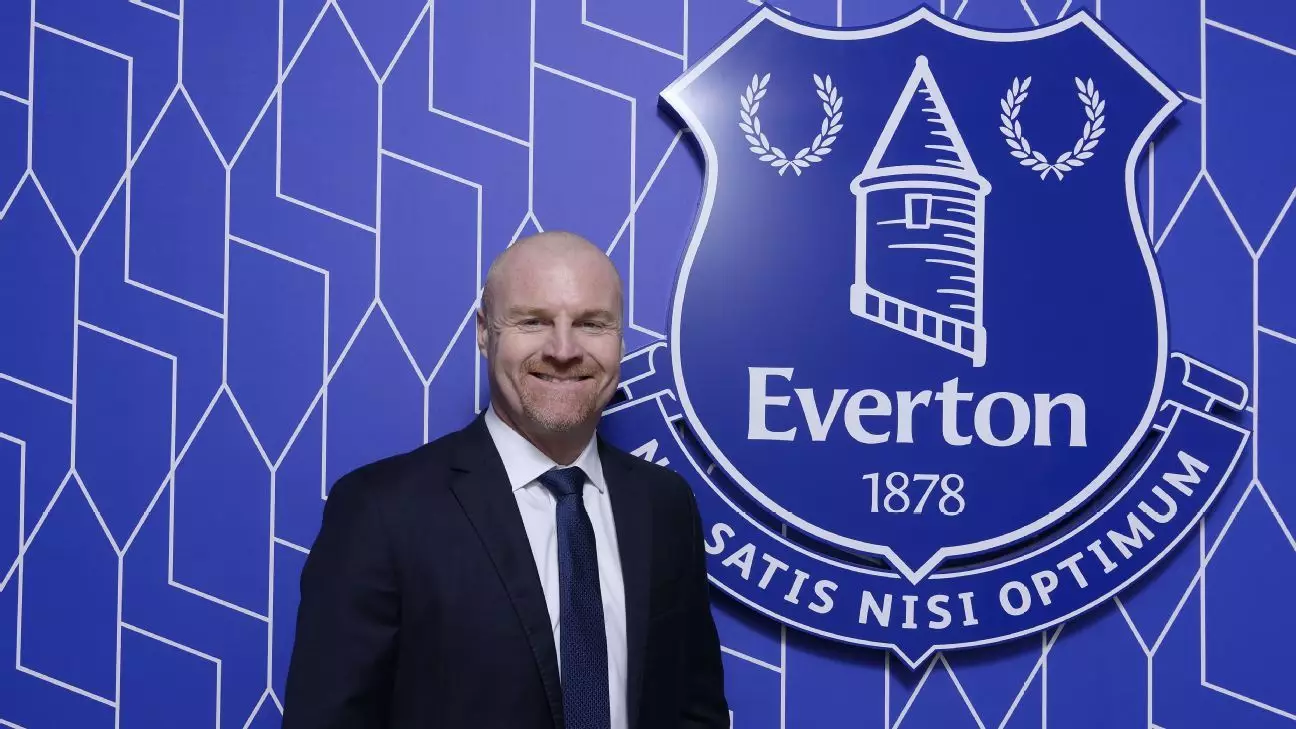Everton Football Club is entering a transformative phase with the recent takeover by The Friedkin Group, an American consortium that has now acquired the majority share from former owner Farhad Moshiri. This change promises not only a shift in governance but also strategic realignment as the club prepares to leave behind Goodison Park—a historic ground—to embrace a modern riverfront stadium. The essence of this takeover lays in the commitment to enhancing the performance of the team while ensuring financial stability and organizational integrity.
Manager Sean Dyche has expressed a positive outlook regarding the new ownership, emphasizing that he feels “nothing but support” from the Friedkin Group. This sentiment is crucial for Dyche, who is tasked with steering the club after a turbulent period filled with off-pitch challenges. His insights during a press conference reveal a collaborative spirit; Dyche had a constructive discussion with Marc Watts, the incoming executive chairman. The conversation focused on understanding the current club dynamics, which indicates that the new ownership is not merely a figurehead but is genuinely interested in engaging with the intricacies of the club’s operations.
The Friedkin Group’s emphasis on financial health cannot be overstated. Dyche’s acknowledgment of this concern reflects a broader challenge that clubs often face amidst transitions in management. The club’s recent history has been marred by instability and a risky relegation battle that culminated in a heart-stopping final day in 2023. Such pressures necessitate a commitment to prudent financial practices, ensuring that Everton can rebuild and challenge for higher ambitions in the Premier League.
Performance as a Priority
Amid all changes, winning remains the top priority. Dyche firmly believes that securing results on the pitch will naturally fortify his standing with the new ownership. This assertion highlights a pragmatic approach to management; while organizational change is occurring at higher levels, the fundamental responsibility of delivering victories must remain constant. Dyche’s strategy could serve as the bedrock for rejuvenating the team’s morale.
As the club braces for this new chapter with the Friedkin Group, there is an undercurrent of optimism that could reverberate throughout the Premier League. This ownership brings with it experience from managing AS Roma in Serie A, suggesting that they may implement similar strategic initiatives aimed at revitalizing club fortunes.
In essence, Everton fans can remain hopeful as the club demonstrates a willingness to learn from past missteps while fostering an environment conducive to growth and stability. The combination of financial prudence, managerial support, and a commitment to excellence on the pitch sets a promising stage for Everton’s future as it embarks on this new journey.

